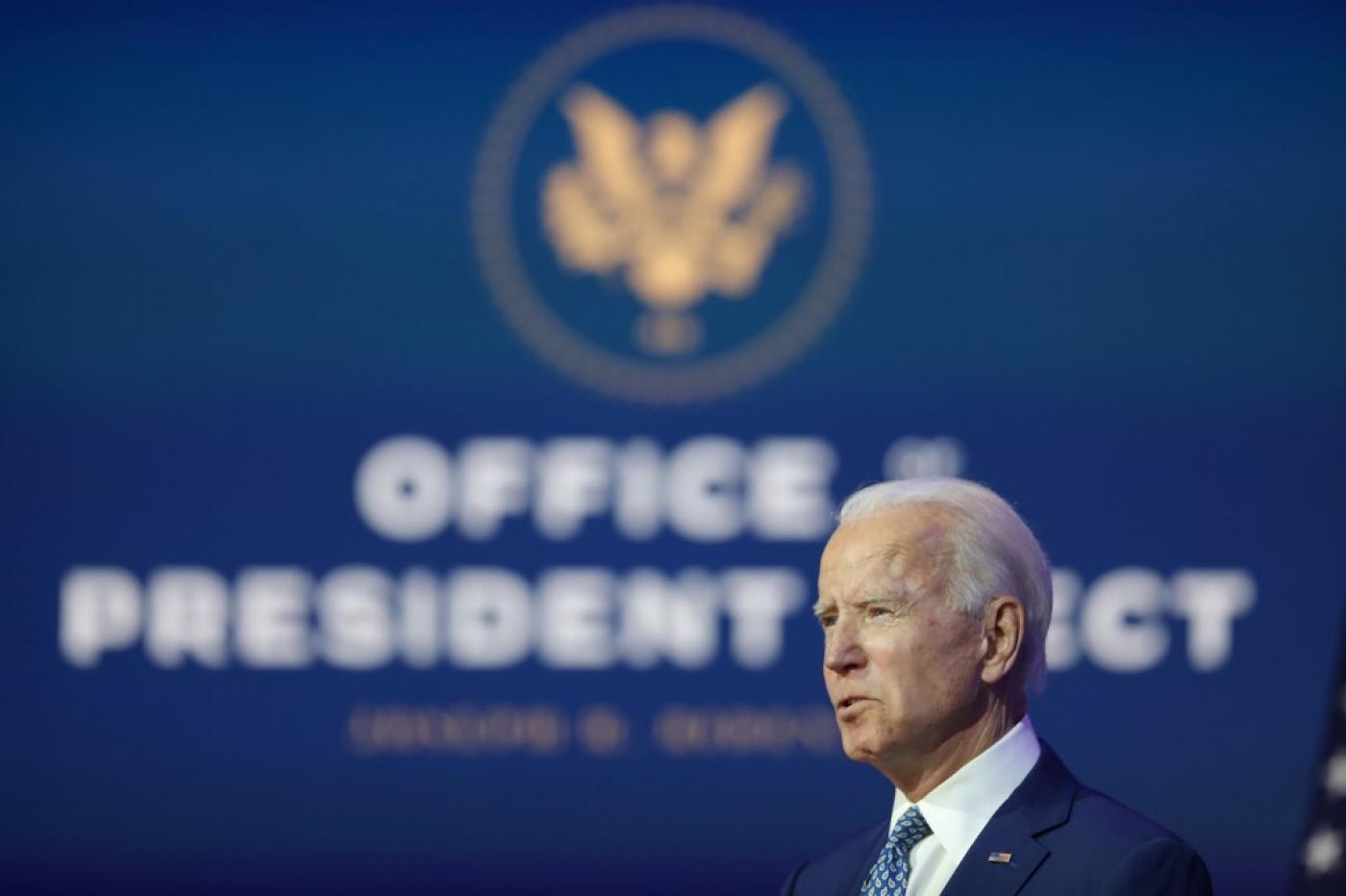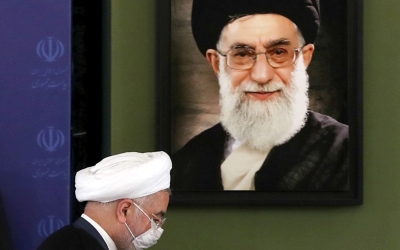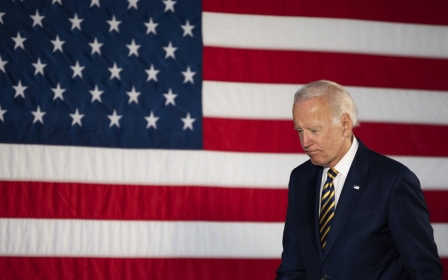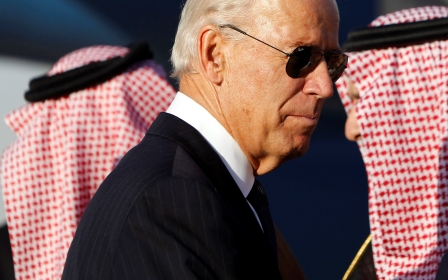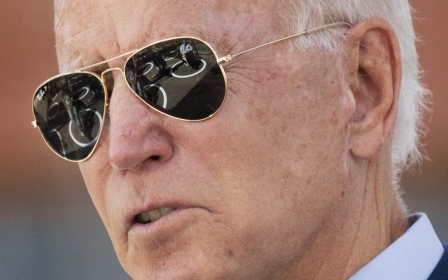Iran nuclear deal: Trump is leaving a poisoned legacy for Biden
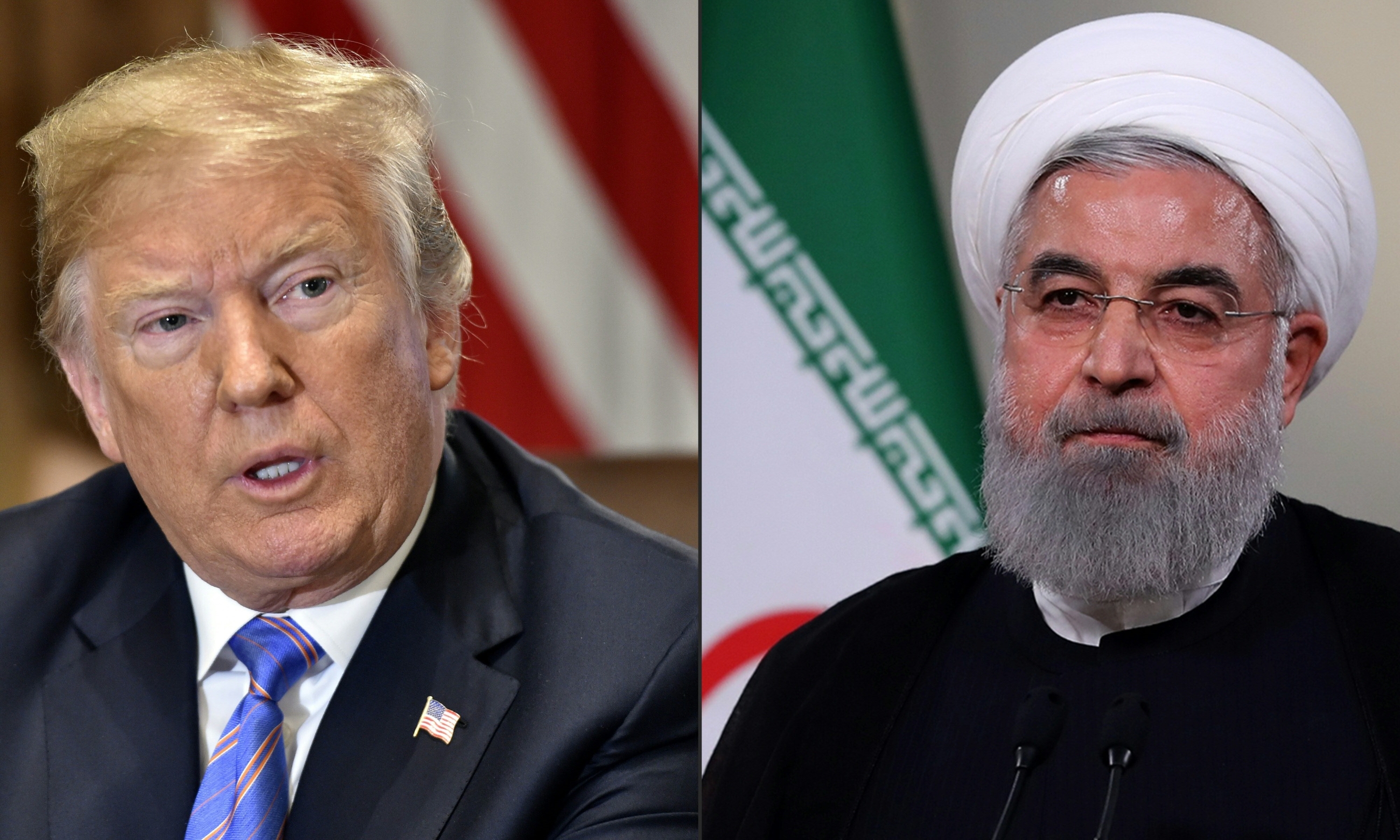
Historians will soon begin assessing outgoing US President Donald Trump’s legacy in foreign policy. In the meantime, Trump seems determined to use his last weeks in power to leave his own legacy in the form of poison pills to his successor, Joe Biden - particularly by complicating any chance to resume a dialogue with Iran.
Regardless of Trump’s interference, relaunching talks with Tehran and rejoining the nuclear deal signed in 2015 may prove extremely difficult. Three big obstacles loom: Washington’s Beltway, US allies in the Middle East, and the views of Biden and his staff on the terms by which a dialogue could be renewed.
Among Washington’s political and security establishment, there is widespread opposition to engage with Iran again. If the Senate remains under Republican control, such opposition may be further reinforced.
Threat of confrontation
The problem lies in a huge misunderstanding about what the 2015 deal was supposed to achieve. Many considered it a tool to curb not only Iran’s nuclear ambitions, but also its missile programme and destabilising activities in the Middle East.
Unfortunately, the nuclear deal was never explicitly intended to cover such topics; this would have required a new, comprehensive negotiation process, encompassing other “destabilising” activities and missile programmes of other regional countries, perceived as a threat by Tehran and its allies - in other words, negotiations on a political and security architecture for the whole region.
For Trump, Israel and their Arab partners, the temptation to create conditions that could tie the new president's hands in relaunching talks with Iran may prove irresistible
Israel and its new Arab partners want Washington to remain engaged in the Middle East to confront Iran. They are for negotiations, provided that they achieve Iran’s capitulation. In their view, any fair deal with Iran would be bad, because it would provide it room to carry on with its so-called destabilising policies, delaying the implementation of what they quietly consider the only acceptable solution: regime change.
While it's not clear what level of lobbying capabilities Riyadh and Abu Dhabi will maintain under the Biden administration, especially after their close flirtation with Trump, Israel will continue on friendly terrain with Biden. To avoid any misunderstanding, Israeli officials have already warned that if Biden should change course, there could be a confrontation between Israel and Iran.
Although Saudi Arabia may feel significant unease with the Biden administration, some key officials have already urged Biden not to rejoin the nuclear deal.
What led to the impasse?
Already, the incoming president and some of his aides have laid out complicating conditions for rejoining the JCPOA deal, seeming to ignore the sequence of events that brought us to the current impasse. The Trump administration in 2018 withdrew from the deal and reimposed sanctions on Iran, violating UN Security Council Resolution 2231, which endorsed the deal.
Before reacting, Iran waited for a year in vain for the other signatory parties to remedy the US sanctions; only then did Tehran begin to reduce its compliance with the deal.
The controversy now risks remaining in a Kafkaesque situation, with Biden saying the US would rejoin the agreement “as a starting point for follow-on negotiations” if Iran returns to compliance. Iranian Foreign Minister Javad Zarif responded - far more articulately - that if the US meets its commitments under Resolution 2231, “we will fulfil ours”, and that if the US seeks to rejoin the nuclear deal, “we are ready to negotiate the terms and conditions of Washington’s membership”.
As for Biden’s alleged ambition to pursue follow-on negotiations, Zarif has been outspoken, underlining that “re-engagement does not mean renegotiation” because “if we wanted to do that [renegotiate], we would have done it with President Trump four years ago.”
In assessing the Iranian reaction, it should be noted that Tehran has not forgotten that after the nuclear deal was first implemented, the Obama administration began lobbying and warning banks around the world against enabling commercial transactions in US dollars with Iran. From Iran’s perspective, this emptied the nuclear deal of any real value.
Sanctions relief, a fundamental pillar that pushed Tehran to sign the deal, never truly materialised. Some of the advisers who advocated these decisions under the Obama administration will likely sit again in Biden’s.
Opportunities for escalation
Yet, even before Biden’s real intentions have become clear, for Trump, Israel and their Arab partners, the temptation to create conditions that could tie the new president’s hands in relaunching talks with Iran may prove irresistible. The coming weeks could see increased tensions fuelled by reinforced US sanctions, without excluding the possibility of US and Israeli strikes against Iranian assets in the region, or even inside Iran’s borders.
The secret meeting between Israeli Prime Minister Benjamin Netanyahu, Saudi Crown Prince Mohammed bin Salman, and US Secretary of State Mike Pompeo that, according to Israeli news sources took place a few days ago in Saudi Arabia, could have been the occasion where this desperate escalation attempt may have been finally agreed and fine-tuned.
There are plenty of opportunities: accidents in Syria and Lebanon that could also be used as a rationale to target Hezbollah; further attacks by pro-Iran militias in Iraq; maritime accidents in the Gulf attributed to Iran’s Revolutionary Guards, which could allow for massive counterstrikes; new attacks on Saudi oil facilities; an escalation in Yemen; or a terrorist attack against US, Israeli or Arab interests in the region.
A strike against Iranian nuclear facilities could also be justified by the threat of its uranium-enrichment activities since the nuclear deal fell apart.
Any event that could increase tensions and make it extremely difficult for the incoming US president to justify a new policy vis-a-vis Iran will be welcomed in these circles. In such a case, major European powers may find it impossible to blame the US, having begged for so long to have anyone but Trump in the White House.
Once again, it will be up to Iran’s leadership to show the strategic patience it has widely displayed so far. But this time may be different, as next June Iran will have its own presidential election - and Iranian hawks may also find a casus belli irresistible.
The views expressed in this article belong to the author and do not necessarily reflect the editorial policy of Middle East Eye.
Middle East Eye propose une couverture et une analyse indépendantes et incomparables du Moyen-Orient, de l’Afrique du Nord et d’autres régions du monde. Pour en savoir plus sur la reprise de ce contenu et les frais qui s’appliquent, veuillez remplir ce formulaire [en anglais]. Pour en savoir plus sur MEE, cliquez ici [en anglais].



